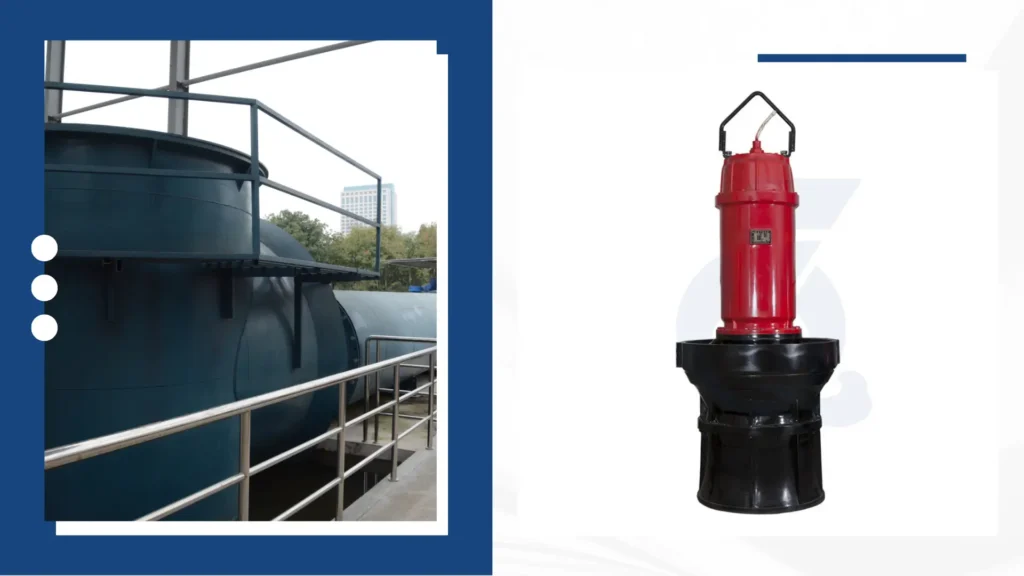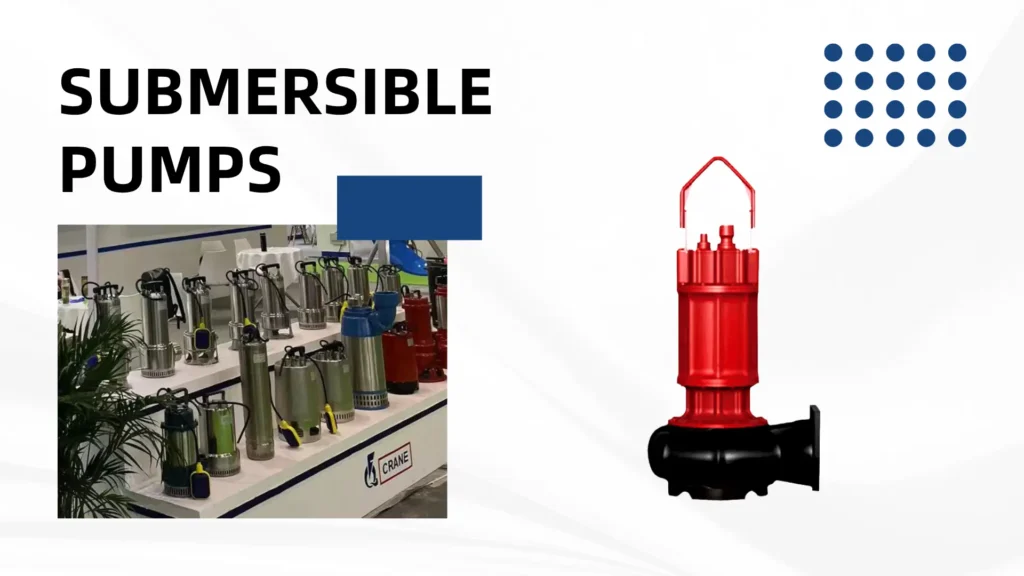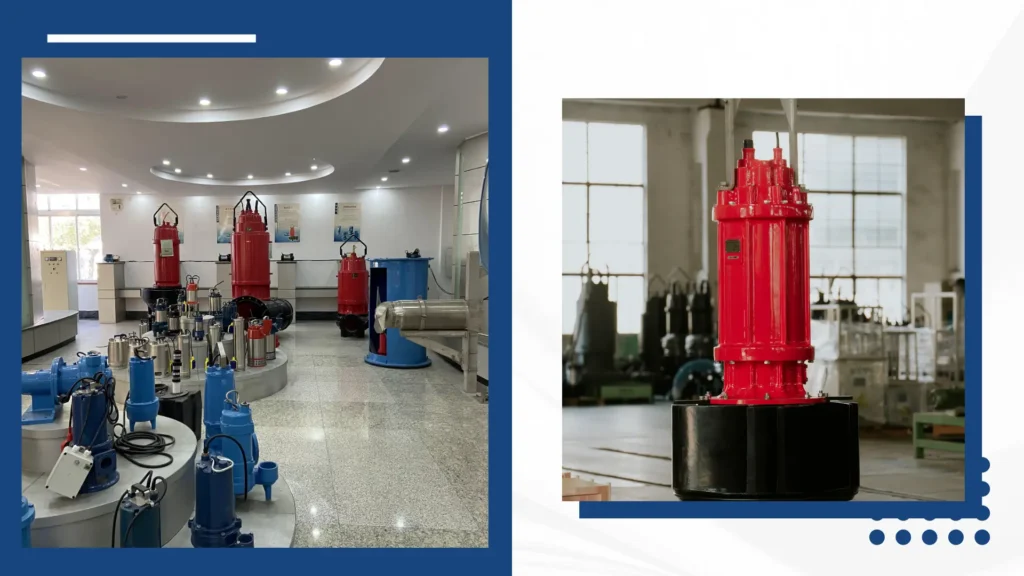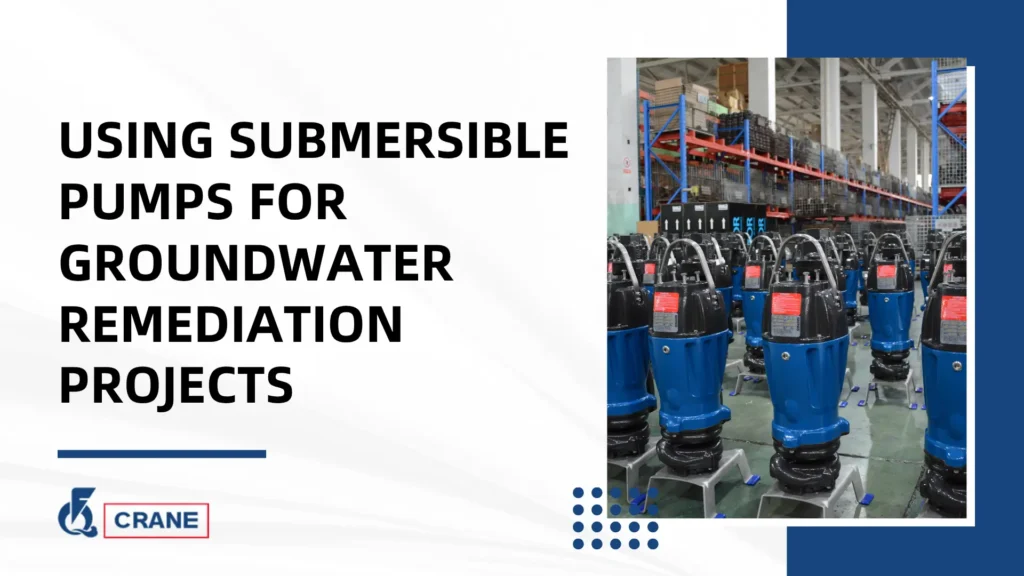Groundwater contamination poses a significant threat to our environment and health. Contaminants can seep into aquifers, affecting drinking water supplies and local ecosystems.
Effective remediation is essential to restore the quality of groundwater and mitigate these risks.
One of the most efficient methods for addressing groundwater contamination is through the use of submersible pumps.
These pumps are specifically designed to operate underwater, making them highly effective for extracting contaminated water.
This article explores the fundamentals of submersible pumps, their benefits, and their application in groundwater remediation projects.
Why Use Submersible Pumps in Groundwater Remediation?
Efficiency in Fluid Movement
Submersible pumps are engineered to move large volumes of water quickly and efficiently.
Their design allows for rapid extraction of groundwater, significantly speeding up the remediation process.
This efficiency is crucial when dealing with contaminated sites, as swift action can prevent further environmental damage and health risks.
The ability to pump large quantities of water in a short time frame means that remediation efforts can be completed more quickly, allowing for faster restoration of the site.

Reduced Risk of Contamination Spread
Operating directly in the contaminated area allows submersible pumps to minimize the risk of spreading pollutants to surrounding environments.
They can extract contaminated water from the source, reducing the likelihood of contaminants migrating to clean areas.
This targeted approach is vital in preventing further pollution and protecting nearby water sources.
By isolating the contamination, submersible pumps help to contain the problem, making the remediation process more effective and less hazardous.
Cost-Effectiveness
Using submersible pumps can lead to significant cost savings during both installation and operational phases.
Their efficient design reduces the need for extensive excavation or infrastructure modifications, lowering initial setup costs.
Additionally, their high pumping capacity means that less time is spent on site, which translates to lower labor costs.
Over time, the durability and reliability of submersible pumps also contribute to reduced maintenance expenses, making them a financially sound choice for groundwater remediation projects.
And More:
- What is the difference between a submersible and a non-submersible pump?
- Cost Comparison: Submersible Pumps from China vs Other Countries
How Do Submersible Pumps Work?
The Pumping Mechanism
Submersible pumps operate by creating a pressure differential that pulls water into the pump and pushes it to the surface.
This mechanism is essential for effective groundwater extraction, as it allows the pump to lift water from deep underground.
The design of the impeller and the casing ensures that water is efficiently drawn in and propelled upward, overcoming the challenges posed by depth and pressure.
This fundamental operation is what makes submersible pumps particularly suited for groundwater remediation.
Power Supply and Control
Most submersible pumps are powered by electricity, enabling them to operate reliably in various environments.
Many modern submersible pumps come equipped with options for remote control and monitoring, enhancing usability and operational efficiency.
This capability allows operators to monitor performance in real time, making adjustments as needed without needing to be physically present at the site.
Such features contribute to more effective management of groundwater remediation efforts, ensuring that operations run smoothly and efficiently.

Maintenance Requirements
Regular maintenance is essential for optimal performance and longevity of submersible pumps.
Routine inspections of seals, motors, and impellers are crucial to prevent breakdowns and ensure efficient operation.
Maintenance practices also help identify any potential issues before they escalate, allowing for timely repairs.
By investing in regular upkeep, operators can extend the lifespan of their pumps and maintain consistent performance, ultimately leading to more successful groundwater remediation outcomes.
What Are the Benefits of Submersible Pumps in Groundwater Remediation Projects?
Versatility in Applications
Submersible pumps are highly versatile and can be utilized in various scenarios beyond groundwater remediation.
They are commonly used for dewatering construction sites, where excess water can hinder building progress and pose safety hazards.
These pumps are effective in managing stormwater during heavy rainfall, helping to prevent flooding and protect infrastructure.
Their adaptability makes them an essential tool in multiple industries, including agriculture, municipal water management, and industrial applications.
This broad range of uses highlights the practicality and efficiency of submersible pumps in addressing diverse water-related challenges.
Environmental Friendliness
Submersible pumps contribute to more environmentally friendly remediation processes.
Their design allows for efficient extraction of contaminated groundwater, which minimizes the disturbance of surrounding soil and ecosystems.
This careful approach helps to maintain the integrity of the environment while addressing contamination.
Furthermore, by effectively removing pollutants from the water, submersible pumps facilitate the restoration of natural water quality, leading to healthier ecosystems and safer drinking water.
The reduced environmental footprint associated with their use is a significant advantage in today’s sustainability-focused landscape.
Safety Features
Many submersible pumps are equipped with advanced safety features, ensuring safe operation even in challenging conditions.
For instance, thermal overload protection prevents the motor from overheating, which can lead to equipment failure or hazardous situations.
Features like leak detection and automatic shut-off mechanisms enhance safety by preventing accidents during operation.
These built-in safety elements not only protect the equipment but also safeguard the operators and nearby personnel, making submersible pumps a reliable choice for various applications.

What Challenges Do Submersible Pumps Face?
Technical Limitations
Submersible pumps can encounter several technical challenges that may affect their performance.
Clogging is a common issue, particularly when dealing with abrasive materials or debris in contaminated groundwater.
This can lead to decreased efficiency and necessitate frequent maintenance. Wear and tear on components like impellers and seals can also occur, which may result in costly repairs or replacements.
Understanding these potential challenges is essential for operators to implement effective maintenance strategies and ensure the longevity of their equipment.
Depth Limitations
The efficiency of submersible pumps is influenced by the depth at which they operate.
As depth increases, the pressure and resistance encountered by the pump can reduce its overall performance.
This limitation makes it crucial to select the right pump for specific projects, taking into account the depth of groundwater extraction required. In some cases, specialized pumps may be necessary to handle deeper applications effectively.
Careful consideration of these depth-related challenges can enhance the success of groundwater remediation efforts.
Initial Installation Costs
While submersible pumps can be cost-effective over time, the initial investment for high-quality models can be significant.
Factors such as pump size, specifications, and installation requirements contribute to these upfront costs.
Budget constraints may pose challenges for some projects, leading to difficult decisions regarding equipment selection.
However, considering the long-term savings in maintenance and operational efficiency can help justify this initial expenditure.
Understanding the overall value of submersible pumps is essential for making informed financial decisions in groundwater remediation projects.
Also Read:
- What Factors Affect the Efficiency of Submersible Pumps?
- 8 Signs Your Submersible Pump Needs Immediate Attention

How to Choose the Right Submersible Pump for Groundwater Remediation Projects?
Assessing Project Requirements
Understanding the specific needs of your groundwater remediation project is essential in selecting the appropriate pump.
Factors such as the type and degree of contamination, the volume of water to be extracted, and the site conditions play a crucial role in this assessment.
Identifying whether the project requires continuous pumping or intermittent use can also influence the choice of pump.
Cnsidering the environmental impact and regulatory requirements associated with the project will help ensure that the selected pump aligns with overall remediation goals.
A thorough assessment of these requirements sets the foundation for making an informed decision.
Evaluating Pump Specifications
When evaluating potential submersible pumps, it is important to consider several key specifications. Flow rate is a critical factor, as it determines how quickly water can be extracted from the site.
Understanding the required head height, which refers to the vertical distance the pump needs to lift the water, is also vital for ensuring efficient operation.
Power supply options should be reviewed to guarantee compatibility with the site’s electrical infrastructure.
Other specifications, such as materials used in construction and motor type, can affect durability and performance in harsh environments.
Careful evaluation of these factors helps in selecting a pump that meets the project’s demands effectively.
Seeking Professional Guidance
Consulting with experts can provide valuable insights, ensuring that you make an informed decision regarding your pump selection.
Professionals in the field can offer recommendations based on their experience and knowledge of various pump models and their performance in similar applications.
Engaging with engineers or specialists can also help identify potential challenges and solutions specific to your project.
Additionally, expert consultations can assist in understanding the latest technologies and advancements in submersible pump design.
Leveraging this expertise can lead to better outcomes and enhance the overall effectiveness of groundwater remediation efforts.

Conclusion
Submersible pumps play a vital role in groundwater remediation projects by providing efficient, cost-effective, and environmentally friendly solutions.
Their ability to extract contaminated water quickly and effectively is essential in addressing groundwater contamination issues.
Understanding the functionality, benefits, and challenges associated with these pumps enables stakeholders to make informed decisions that contribute to the successful remediation of contaminated groundwater.
As we continue to address environmental issues, the use of submersible pumps will remain a key component in safeguarding our water resources and ensuring a healthier future for communities and ecosystems alike.

